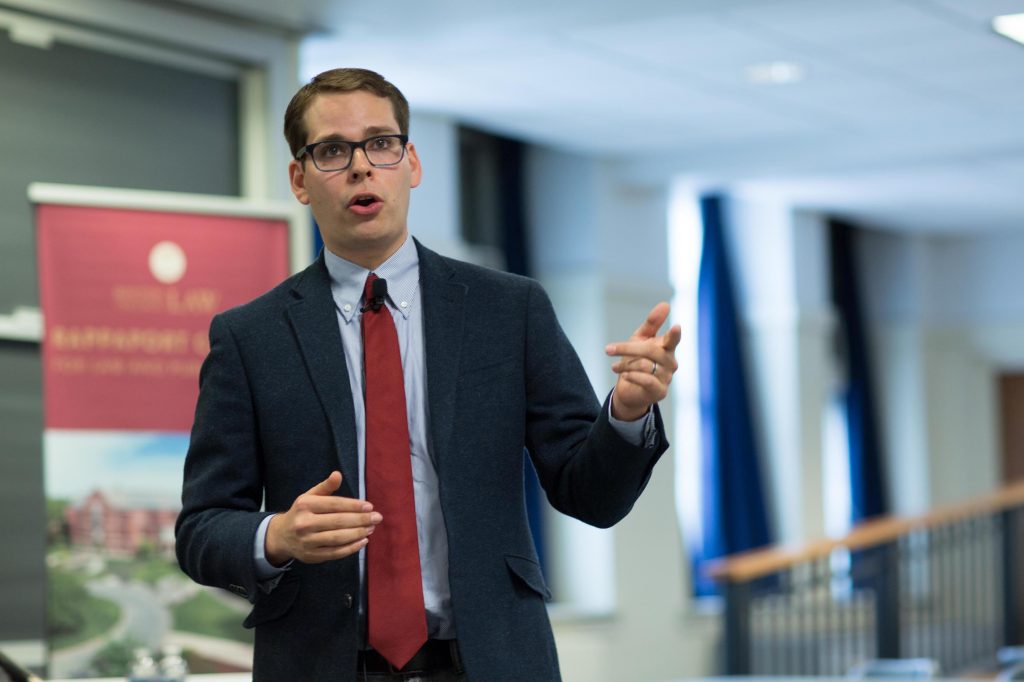Months before the 2016 election, Joshua Matz was already stunned by the frequency and vitriol of impeachment discussion he observed in America. “Before the primaries had even ended there was widespread talk that whoever won would be impeached,” Matz recalled. “Before Hillary Clinton or Donald Trump got into office the country was already talking about impeaching them for abusing powers they didn’t yet possess.”
Matz, attempting to understand this unprecedented political environment, joined Harvard Law School professor Larry Tribe to write To End a Presidency: The Power of Impeachment. The Rappaport Center for Law and Public Policy hosted Matz at the Law School campus on October 24 to discuss the book and to assess impeachment as a tool in American politics.
“President Trump came into office with thirty-two percent of Americans already thinking he should be impeached,” Matz noted. “The book presents questions that go to the heart of how you govern a country at a time when a substantial percentage of the population thinks the President poses a grave threat to the constitutional order, and a significant percentage also views him as a political savior whose impeachment would amount to a coup.”
Tracing the book’s narrative, Matz began with the framers’ debates and detailed the history about how impeachment made it into the US Constitution at all. He went on to discuss the 19th century impeachment of President Andrew Johnson, and how the Senate’s failure to remove Johnson from office essentially took impeachment off the political table for a century. Matz then discussed the calls for impeachment that occurred from the Truman to Obama administrations, theorizing that the impeachment of President Bill Clinton in 1998 led directly to the modern understanding of the process as a partisan tool that’s now part of our daily political practice.
Matz concluded by noting that the evolution of our national views on impeachment have made it almost impossible to use as a tool, and cautioning that attempts to impeach President Trump would likely backfire against Congressional Democrats. “Now that we view it as an extension of partisan rhetoric and warfare, it’s possible that impeachment is making things worse and can’t make it better,” Matz said. “We need a saner, rational, more cautious outlook on this to walk back from the thinking that impeachment will either solve all our problems or destroy the country.”
Professor Daniel Kanstroom, faculty director for the Rappaport Center, led a question and answer session at the event and highlighted other challenges to constitutional democracy, the theme of the center’s programming this year.
For more information about future Rappaport Center events, click here.


